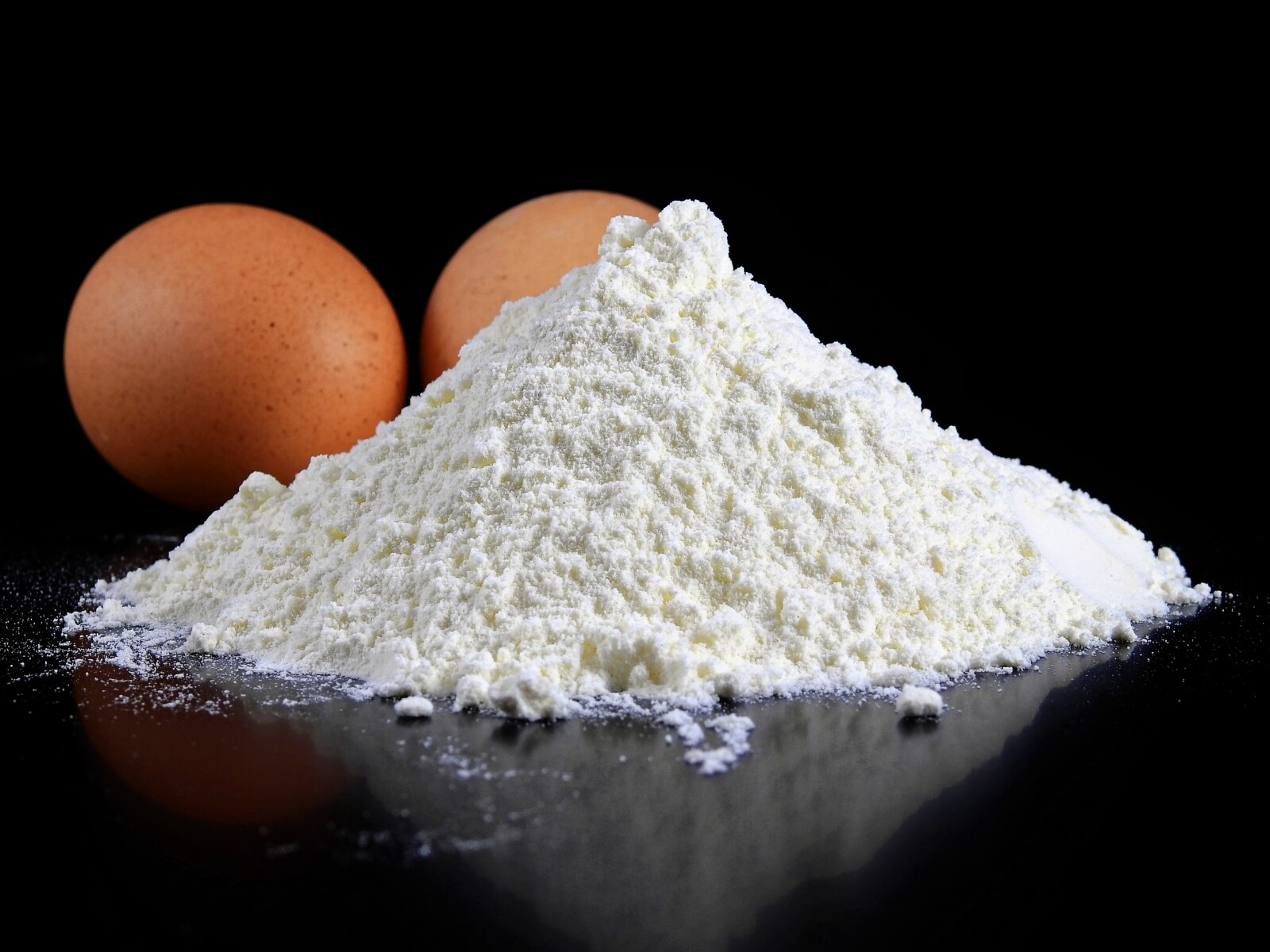nutrition
What's The Difference Between Collagen vs. Collagen Peptides
On This Page

When it’s time for collagen, do you choose collagen or collagen peptides? Find out what the difference is right here.
What is Collagen?
Collagen is the most abundant protein in the body. It is made of amino acids and its fiber-like structure is used to make connective tissue, which then connects other tissues. It is a major component of skin, bone, muscles, tendons, ligaments, and cartilage and it helps to make tissues strong and resilient. Collagen is what gives your skin the elasticity that it needs to be stretched and then returned back to normal. It is also responsible for the smooth, plump, healthy, youthful looking skin people are born with, and it keeps that skin intact until the body starts to age and collagen production begins to slow down. Lifestyle choices such as sun exposure, cigarette smoking, excess alcohol consumption, stress, lack of sleep, and lack of exercise can make the collagen production slow even more quickly. Environmental exposures can also damage collagen fibers and reduce their thickness, strength, and elasticity which would likely lead to wrinkles on the skin’s surface. There is currently research that confirms that taking collagen supplements on a regular basis can help to hydrate the skin, support and improve elasticity, and actually reduce the appearance of wrinkles.
The human body is approximately 30% protein, and 90% of that protein is collagen. These collagen proteins are critical in helping to support the structural health and integrity of the body’s tissues, especially connective tissues like cartilage, tendons, ligaments, and bone, teeth, muscles, and joints. It also promotes healthy hair and strong, healthy nails. The benefits of collagen are numerous and diverse, and it is safe to say that it helps to keep humans strong, healthy, and flexible.
Food sources of collagen include red meat, especially tough cuts with an abundance of connective tissue like brisket, pot roast, and chuck steak, chicken cartilage and the skin and bones of both fresh and saltwater fish. It is also plentiful in bone broth, which you can either make at home or find on the soup aisle of most grocery stores.
Although collagen is consumed in food, supplementation can be more efficient. It is important to note that vitamin C is essential for collagen synthesis. If you do supplement, increase your vitamin C level accordingly.
Collagen types 1, 2, and 3
Most scientists would agree that there are 28 types of collagen, though there is a school of thought that contends there are only 16 at the present time. While the actual number is an ongoing issue as this science is still fairly new, there is relative certainty that there are more collagen proteins yet to be discovered. In the meantime, the general consensus is that there are five main types of collagen (I, II, III, V, X).
Type I collagen comprises 90% of the body’s total collagen, making it the most plentiful one in the body. It is found in the skin, eyes, bones (as reinforcing rods in its construction), tendons, and teeth. It is most commonly known for its benefits to the skin, reducing fine lines and wrinkles, improving the texture and quality of damaged skin due to the body’s natural decline in collagen, and hydrating and recapturing a bit of the plump, smooth, healthy looking skin of youth. The collagen fibers are the framework for elastin, which maintains skin elasticity allowing it to stretch and snap back into its normal state. It is also responsible for strong, healthy hair and nails, and for providing structure, strength, and support throughout the entire body. The best sources of type I collagen are bovine (red meat), bone broth, eggshells, and marine (fish), though it can also be found in chicken skin and porcine (pork).
Type II collagen makes up at least 70% of the collagen found in cartilage. It is also part of the structure of the ear, nose, rib cage, and bronchial tubes, though it is most well-known for its support of healthy joints. The best sources of type II collagen are chicken and bone broth. When supplementing, it is best to take type II separate from types I and III for maximum absorption and effect.
Type III collagen is found in organs, blood vessels, muscle structures, and in many of the same places as type I. The two collagen types often work in tandem and are frequently taken together. The best sources of type III collagen are bovine, marine, and bone broth. If taking all 3, it is best to take types I and III together and type II at a later time.
What are Collagen Peptides?
Collagen cannot be absorbed in its whole form, therefore it needs to be broken down into smaller particles called peptides. A peptide is a short chain of amino acids that are linked together by chemical (peptide) bonds.
Collagen peptides are made by extracting collagen from animals such as cows, fish, and chickens, as well as eggshell membranes. Once extracted, the collagen is put through a process called hydrolysis, which heats and breaks down the collagen in order to maximize ease of absorption by the body. This broken down form of collagen, now called collagen peptides or hydrolyzed collagen, is packaged in various forms (powders, pills, drinks, etc.- all of which typically contain 2 or 3 amino acids) and sold to consumers. Collagen peptides are absorbed through the gastrointestinal tract.
What's the Difference Between Collagen and Collagen Peptides?
Whole collagen is difficult for the body to digest or absorb, while collagen peptides are significantly more accessible for the body. If you are taking a whole collagen supplement, your body will only be able to use a small portion of it as compared to that of a collagen peptide supplement. This difference in bioavailability is the major impetus behind collagen peptides as a collagen alternative.
Collagen peptides are a special form of collagen in which the whole collagen protein has been hydrolyzed (broken down) into a more bioavailable, easily absorbable protein. Essentially, these smaller pieces of collagen are fragments of the original, complete protein.
Collagen Peptides vs. Hydrolyzed Collagen
Collagen peptides, also known as hydrolyzed collagen powder, is a special form of collagen in which the full collagen protein has been hydrolyzed and is now tiny fragments of its original form. Once the full length collagen protein is fully broken down into peptides it is more bioavailable and ready to be easily absorbed into the bloodstream. Collagen peptides are frequently referred to as hydrolyzed peptides or simply hydrolyzed collagen, but they are all just different names for the same product.
Is One Better than the Other?
The difference between collagen and collagen peptides is that one is a scientifically broken down form of the other. Collagen peptides are made by breaking animal collagen into tiny fragments through the process of hydrolysis. While the ultimate goal may be additional collagen by supplementation, the issue is the low bioavailability of collagen versus the high bioavailability of collagen peptides.
Whole collagen is difficult for the body to digest or absorb and collagen peptides are substantially more accessible for the body. In terms of absorbability, it is probably best to use collagen peptides. It is important, however, to remember that there are a number of different types of collagen, and that supplements come in many forms. It is best to consult your physician or a registered dietician when making decisions about supplementation.
The Bottom Line
Collagen is not a magical remedy for the wrinkles and ravages that come from age, sun, stress, smoking, drinking, and bad decisions. The entire body from gut to bone has always relied on collagen in order to be operating at its best. Yes it is beneficial for your skin, hair, and nails, but it is also critical for your joint health, bone health, strong teeth, healthy organs and blood vessels.The optimal way to get collagen is from a healthy diet that includes chicken, fish with skin, tough cuts of red meat like brisket and pot roast, and pork. It is also the perfect time to be joining the bone broth trend as it is proving to be one of the best natural sources of collagen - and you can make it yourself.
But if you decide you want to supplement your body’s intake of collagen, get all the facts including what kind, how much, and how often. Care/of’s articles How Much Collagen to Take and Do Collagen Supplements Actually Work can be great sources of information to get you started. And if you opt for collagen, it can be as easy as a spoonful in your morning coffee, a couple of capsules, a gummy or two, or a premade drink. There are plenty of supplement options available, but you want to read the labels. Additives, fillers, artificial flavors and the oft hidden ingredient sugar can have a major impact on your supplementation’s effectiveness. CareOf’s premium unflavored collagen The Skin Hero lists one ingredient: 100% Grass-Fed Collagen Peptides (bovine).
It’s important to be aware that vitamin C is essential for collagen synthesis when you’re supplementing. There’s never a bad time to load up on fresh fruits and vegetables as part of your healthy diet.



